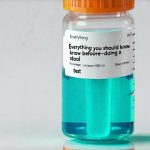When you visit your doctor for testing, it’s usually with the expectation of answers – a definitive understanding of what’s going on within your body. So, it can be unsettling, even anxiety-inducing, when your physician suggests repeat testing. It feels counterintuitive; shouldn’t one test be enough? The reality is that medicine isn’t always black and white. Our bodies are complex systems, tests aren’t perfect, and accurate diagnosis often requires careful consideration of multiple factors over time. Understanding why a doctor might order repeat tests can alleviate worry and empower you to participate more effectively in your healthcare journey.
Repeat testing isn’t about doctors being uncertain or lacking confidence; it’s a fundamental part of sound medical practice. It recognizes the inherent limitations within diagnostic procedures and aims for the most accurate assessment possible. Many factors, from pre-analytical variables (how the sample was collected) to analytical variations (slight differences in lab equipment), can influence test results. Repeat testing helps minimize the impact of these variables and build a clearer picture of your health status, leading to more informed treatment decisions. It’s about ensuring confidence in the diagnosis—and ultimately, providing you with the best possible care.
Understanding Variability & Test Limitations
Test results aren’t snapshots; they are often points along a spectrum. Many biological markers naturally fluctuate throughout the day, or even within hours. This is particularly true for tests measuring hormones, blood sugar, and inflammation levels. A single test result might be influenced by recent meals, stress levels, hydration status, or medication timing. Therefore, a seemingly abnormal result on one occasion doesn’t automatically indicate a problem—it could simply reflect temporary variation. – For example, cortisol levels (a stress hormone) are typically highest in the morning and lowest at night. A single measurement taken at an inappropriate time might be misleading.
– Repeat testing allows doctors to account for these natural fluctuations and identify consistent patterns that truly signify a health concern.
Moreover, all tests have inherent limitations. No diagnostic test is 100% accurate; there’s always the possibility of false positives (a test indicating a condition when it isn’t present) or false negatives (a test failing to detect a condition that is present). These errors can occur due to various factors, including lab equipment calibration, human error during sample analysis, and even cross-reactivity with other substances in the blood. – A single abnormal result could be a false alarm, while repeated testing helps confirm or rule out the initial finding, reducing the risk of misdiagnosis.
– Modern labs employ rigorous quality control measures to minimize these errors, but they can never be completely eliminated.
Finally, it’s important to remember that tests are tools – valuable ones, certainly – but they don’t tell the whole story. Doctors rely on a combination of test results, your medical history, physical examination findings, and reported symptoms to arrive at an accurate diagnosis. Repeat testing contributes to this comprehensive assessment by providing more data points and helping to refine the diagnostic process. A doctor won’t base a critical decision solely on one isolated result. If you are experiencing issues with reflux, consider how to talk to your physician.
Why Specific Tests Often Need Repeating
Some tests are inherently more prone to variability or require confirmation due to their clinical significance. – Blood pressure readings, for instance, can be affected by anxiety, caffeine intake, and even the position of your arm during measurement. Doctors often recommend multiple readings taken on different occasions to accurately assess blood pressure status.
– Similarly, glucose testing in diabetes management requires regular monitoring because blood sugar levels fluctuate significantly based on diet, exercise, and medication.
Another example is testing for strep throat. Rapid strep tests have a relatively high rate of false negatives. If symptoms strongly suggest strep throat but the rapid test comes back negative, your doctor might order a throat culture – a more accurate (but slower) test – to confirm or rule out the diagnosis. – Cultures are less susceptible to immediate external factors and offer greater sensitivity in identifying the presence of the bacteria.
– This is particularly important because untreated strep throat can lead to serious complications like rheumatic fever. If you’re concerned about your gut health, it’s useful to understand signs that your gut may be struggling.
Finally, certain antibody tests used to diagnose autoimmune diseases or infections may need repeating over time. Antibody levels can change as the disease progresses or responds to treatment. – Repeat testing helps track these changes and assess the effectiveness of therapy.
– Moreover, some antibodies develop gradually, meaning they might not be detectable on initial testing but appear later in the course of the illness. Are you concerned about your diet? Learning about signs that your current diet may be overstimulating fermentation could prove useful.
The Role of Sample Collection & Handling
The accuracy of any test relies heavily on proper sample collection and handling. This is often an area where errors can occur, leading to inaccurate results that necessitate repeat testing. – Improper storage temperatures, delayed transport to the lab, or contamination during collection can all compromise the integrity of the sample.
– For example, blood samples for certain hormone tests need to be drawn at specific times of day and handled carefully to avoid falsely elevated or depressed levels.
Different types of tests have different pre-analytical requirements. – Urine samples may need to be midstream clean catch to avoid contamination from skin bacteria.
– Blood samples might require fasting for a certain period before the test to ensure accurate glucose measurements. Your doctor should always provide clear instructions on how to prepare for testing, and it’s crucial to follow these instructions carefully. It’s also important to understand how alcohol-free drinks may still affect your stomach.
Furthermore, laboratory protocols vary between facilities. – While most labs adhere to strict quality control standards, slight differences in equipment calibration or testing methodologies can introduce analytical variations. Repeat testing at the same lab helps minimize these variations and ensure consistency of results. If you switch labs, your doctor might recommend repeat testing to establish a new baseline. Proper sample handling isn’t just about the lab; it begins with the patient.
When Follow-Up Testing is Crucial for Monitoring Treatment
Repeat testing isn’t always about confirming an initial diagnosis; it can also be essential for monitoring the effectiveness of treatment and adjusting therapy accordingly. – If you’ve been diagnosed with a chronic condition like diabetes, heart disease, or thyroid disorder, regular repeat testing is often necessary to track your progress and ensure that your medication dosages are appropriate.
For example, if you start taking medication for high cholesterol, your doctor will likely order repeat lipid panels (blood tests measuring cholesterol levels) to assess whether the medication is effectively lowering your cholesterol. – If the initial treatment isn’t working as expected, your doctor may adjust your dosage or switch you to a different medication.
Similarly, in cancer treatment, repeat imaging scans and tumor marker tests are used to monitor how well the therapy is shrinking the tumor and preventing recurrence. – These tests provide valuable information about the disease’s response to treatment and guide further management decisions. Monitoring allows for personalized care based on your individual needs. You might find it helpful to learn about signs that your bloating may be emotionally driven as well.
Finally, repeat testing can also help identify potential side effects of medication. – Some medications can affect kidney function or liver enzymes; regular monitoring is essential to detect these changes early and prevent serious complications. If you suspect your medication may be causing reflux-like symptoms, it’s important to speak with your doctor.
It’s natural to feel anxious when your doctor suggests repeat testing, but understanding the reasons behind it can alleviate those concerns. It’s a sign that your physician is committed to providing you with accurate diagnosis and effective treatment. Don’t hesitate to ask questions about why the test is being repeated, what information it will provide, and how the results will be used. Open communication with your doctor is key to navigating your healthcare journey confidently.


















